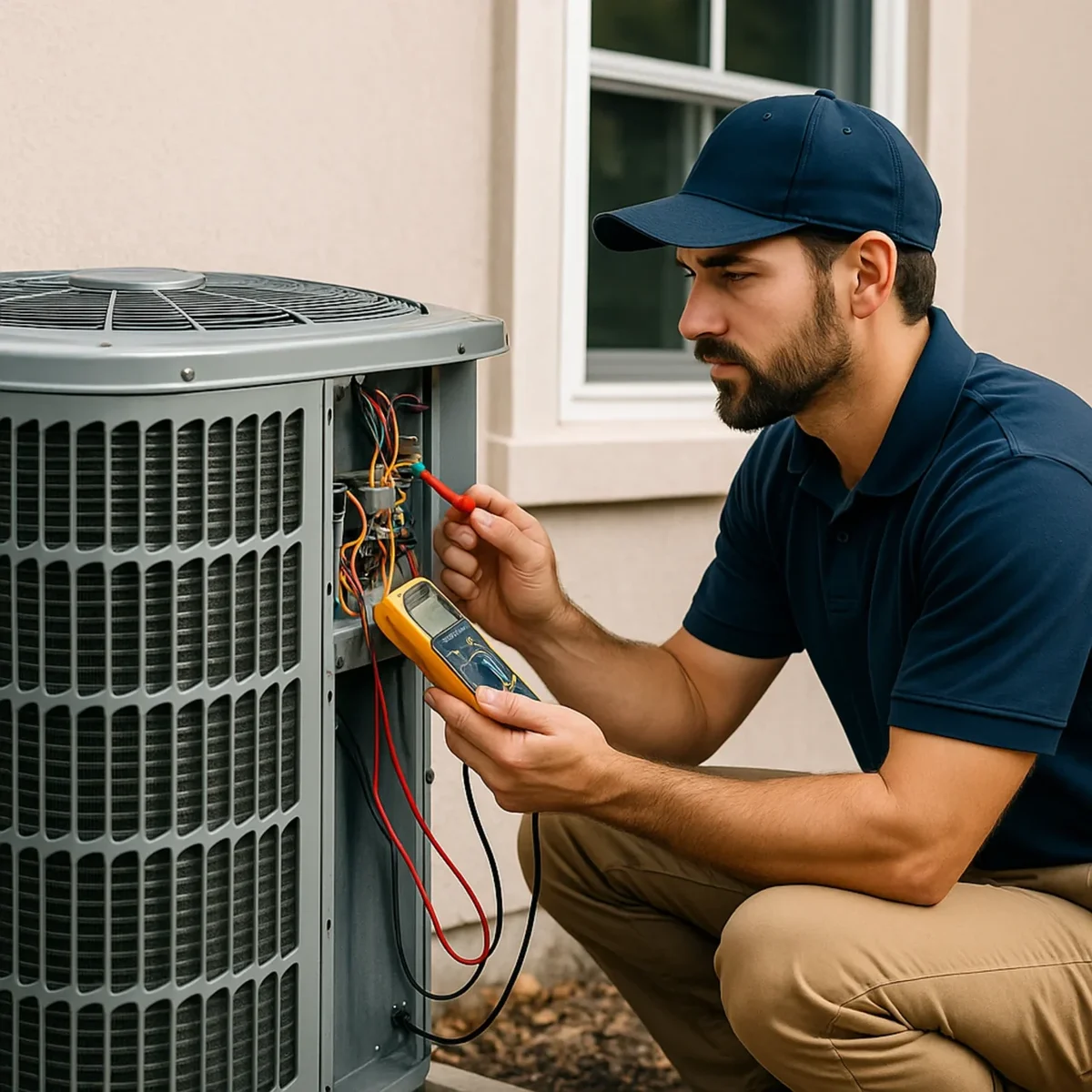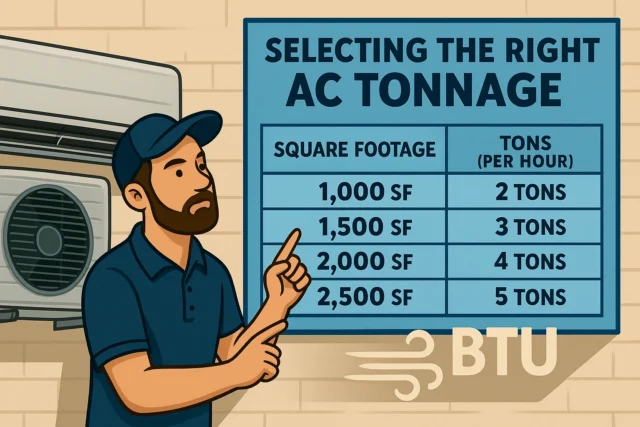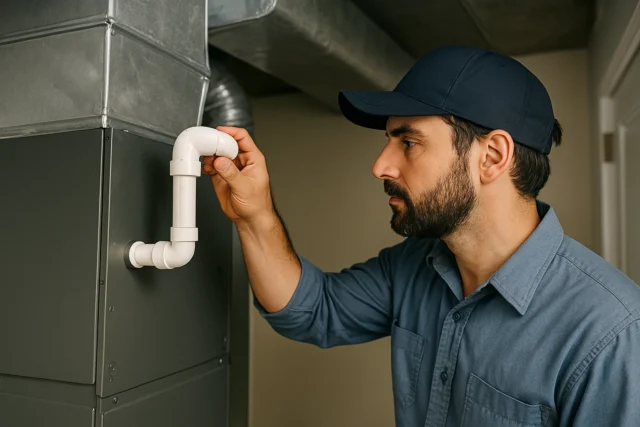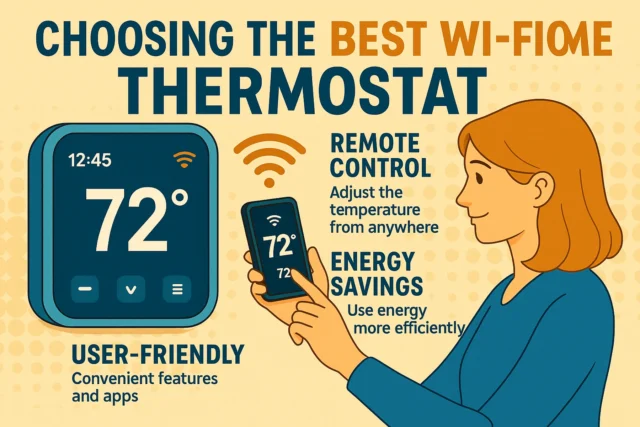Understanding AC Compressor Problems and How to Fix Them

Your air conditioner’s compressor is the heart of the entire cooling system. When it fails, everything else stops working — airflow decreases, indoor temperatures rise, and energy bills spike. Understanding the most common AC compressor problems and how to deal with them can save you time, stress, and expensive repairs.
Whether you own a central air system or a ductless mini-split, the compressor’s job is to circulate refrigerant between the evaporator and condenser coils, allowing heat to move from inside your home to the outdoors. When this essential process is interrupted, the result is poor cooling performance and strain on your HVAC unit.
What Does the AC Compressor Do?
Before diving into problems, it’s important to understand how the compressor functions. It acts as the “pump” that pressurizes refrigerant gas, transforming it into a high-temperature vapor. This vapor then moves through the condenser coils, releasing heat and cooling the air before it cycles back indoors.
Without a working compressor, even the best air handler can’t deliver efficient airflow. The Air Handler plays a critical supporting role here — it pushes conditioned air through your ducts, ensuring even cooling in every room.
If your air feels warm or weak, don’t immediately assume the compressor is dead. It may be a symptom of an imbalance between the air handler, refrigerant pressure, or thermostat settings.
Top Signs of AC Compressor Problems
Your system usually gives you hints before the compressor completely fails. Here are the most common warning signs:
1. Warm Air From Vents
If the air coming from your vents feels lukewarm, your compressor might not be pressurizing refrigerant effectively. This can happen due to leaks, insufficient refrigerant, or valve issues.
2. Strange Noises
Banging, rattling, or clicking sounds near your outdoor condenser unit may indicate mechanical failure, worn bearings, or an electrical short.
3. Tripped Circuit Breaker
A compressor drawing too much power can trip your home’s electrical breaker. This typically points to an internal short or overheating problem.
4. Reduced Airflow or Weak Cooling
Even if your air handler fan works properly, airflow can feel weak if the compressor can’t build enough pressure.
5. AC Won’t Start at All
Sometimes, the unit doesn’t turn on. This could be a simple capacitor issue or a more serious internal motor fault.
If any of these symptoms appear, it’s best to turn off the unit and call a professional from A Customer First AC to avoid additional damage.
Common Causes of Compressor Failure
A compressor rarely fails overnight. In most cases, it’s the result of multiple small issues building up over time.
Dirty Coils and Clogged Air Filters
When coils and filters get dirty, airflow becomes restricted. This makes the compressor work harder to maintain pressure, causing overheating and premature wear.
Low Refrigerant Levels
Refrigerant leaks cause the compressor to overwork, trying to reach the set temperature without enough pressure. Over time, this leads to overheating and failure.
Electrical Issues
Faulty capacitors or loose wiring can cause voltage spikes that damage the compressor’s internal windings.
Incorrect Refrigerant Charge
Too much refrigerant can flood the compressor, while too little causes low pressure — both conditions are harmful and must be corrected by a certified HVAC technician.
Poor Maintenance and Lack of Air Handler Care
Ignoring routine maintenance on your air handler or ductwork can strain the entire HVAC system. Clean filters, ducts, and coils help reduce the workload on the compressor, extending its life significantly.
How to Troubleshoot and Fix AC Compressor Problems
If you suspect your compressor is malfunctioning, here are some steps you can take before calling a technician:
Check the Thermostat — Make sure it’s set to “cool” and not “fan only.”
Inspect the Circuit Breaker — If tripped, reset it once. If it keeps tripping, turn off the system and call for service.
Clean or Replace Filters — Dirty filters can restrict airflow and create pressure imbalances.
Clear Debris Around the Outdoor Unit — Remove leaves, dirt, or anything blocking the condenser.
Listen for Unusual Noises — A buzzing sound may indicate electrical issues; rattling could point to loose parts.
While some of these checks are safe to perform, diagnosing deeper mechanical or refrigerant issues requires professional tools. For instance, if your refrigerant charge is low, it means there’s a leak that must be sealed and re-filled by a licensed HVAC technician.
Preventing Future Compressor Issues
Schedule Regular Maintenance
Professional maintenance once or twice a year can prevent most compressor failures. Technicians inspect pressure levels, clean coils, and verify the air handler’s performance.
Protect Your System During Extreme Weather
Surges from lightning or extreme heat can damage electrical components. A surge protector and shaded outdoor installation can help.
Monitor Air Handler Efficiency
Your air handler directly affects how well the compressor operates. Regular cleaning, lubrication, and inspection of blower motors ensure the system doesn’t overwork.
Upgrade to Smart Controls
A Wi-Fi thermostat helps regulate temperature automatically, keeping your HVAC system from running unnecessarily.
For advanced control and improved comfort, you can also explore the AC Service options offered by A Customer First AC.
When to Replace the Compressor
If your system is more than 10–15 years old and compressor repairs cost more than half the price of a new unit, replacement is usually the smarter choice.
A new compressor or full system upgrade offers benefits such as:
Lower energy bills
Quieter operation
Improved indoor comfort
Extended equipment warranty
Modern HVAC systems are built with better airflow control and energy-saving technologies. Pairing a new compressor with a properly maintained air handler ensures long-term reliability and performance.
The Role of Air Handlers in Compressor Longevity
It’s impossible to discuss compressor health without emphasizing the air handler. This component distributes cooled air throughout your home, ensuring consistent pressure. If the air handler’s motor, filter, or ducts are dirty, the compressor must work harder — and that accelerates wear.
Routine maintenance of both the air handler and compressor is the best strategy for long-term efficiency. A Customer First AC provides complete service packages that include filter replacement, coil cleaning, refrigerant balancing, and drain clearing.
Professional Help You Can Trust
Trying to repair a compressor without proper training can lead to bigger and more expensive problems. Certified HVAC professionals from A Customer First AC can perform a full system diagnostic, check refrigerant levels, inspect air handlers, and provide affordable solutions that restore your comfort fast.
Final Thoughts on Preventing Compressor Problems
An AC compressor failure isn’t just an inconvenience — it can also lead to major costs if ignored. Proper maintenance, early detection, and professional care are key to keeping your cooling system in top shape.
If you notice unusual noises, reduced cooling, or rising energy bills, it’s time to schedule an inspection. A Customer First AC offers same-day service, honest pricing, and experienced technicians who ensure your system runs efficiently all year round.


